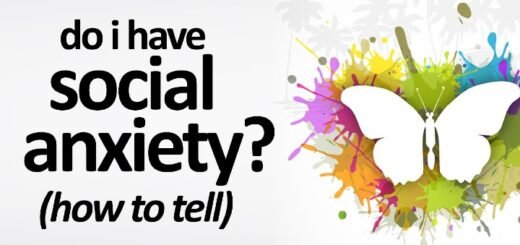Mindfulness Techniques for NZ Students with Social Anxiety
Social anxiety, or social phobia, is a growing concern among New Zealand students, significantly impacting their classroom experience and overall academic performance. Many young learners grapple with feelings of fear and apprehension in social situations, particularly in educational environments where peer interactions are frequent. Effective coping techniques and mindfulness practices are essential tools that can empower these students to manage their anxiety more effectively.
In New Zealand, tailored approaches to address social phobia are crucial for fostering a supportive educational atmosphere. By integrating mindfulness exercises and practical coping strategies into daily routines, students can cultivate resilience and confidence. Resources such as Social Phobia New Zealand provide valuable insights into understanding and overcoming social anxiety, enabling educators and students alike to create a more inclusive classroom experience.
Understanding Social Anxiety and Its Impact on Students
Social anxiety, often referred to as social phobia, can significantly impact students, particularly in classroom settings. In New Zealand, many students experience a heightened sense of discomfort in social situations, which can interfere with their academic performance and social development. Understanding the nuances of social anxiety is critical for developing effective coping strategies.
Social anxiety manifests as an intense fear of being judged or scrutinized in social interactions. For students, this might mean feeling overly nervous about answering questions in class, participating in group discussions, or even walking into a crowded classroom. Such experiences can lead to avoidance behaviors, which further exacerbate feelings of isolation and anxiety.
Recognizing the symptoms of social phobia is the first step towards managing it. Symptoms may include excessive sweating, blushing, rapid heartbeat, or a sense of dread before social interactions. For New Zealand students, it is essential to create an environment where they feel comfortable discussing these feelings openly. Schools and educational institutions can play a vital role by offering resources and support systems that help students address their anxiety.
For more information on social phobia and its implications for students, visit Social Phobia New Zealand.
Mindfulness Techniques for Reducing Anxiety
Mindfulness practices have emerged as effective techniques for managing social anxiety in students. These practices help individuals remain present and focused, reducing the tendency to ruminate on negative thoughts or anticipated embarrassment.
One popular mindfulness technique is deep breathing. When students feel anxious, they can practice deep breathing by inhaling through the nose for four counts, holding for four counts, and exhaling through the mouth for six counts. This simple technique can help calm the nervous system and reduce feelings of anxiety in the moment.
Another effective mindfulness practice is grounding exercises. Students can focus on their surroundings by identifying five things they can see, four things they can touch, three things they can hear, two things they can smell, and one thing they can taste. This exercise helps redirect attention away from anxious thoughts and into the present moment.
Incorporating mindfulness into daily routines can also be beneficial. For instance, students might begin their day with a short meditation or mindfulness exercise, setting a positive tone for the day ahead. Schools in New Zealand can consider implementing mindfulness programs as part of their curriculum to support students struggling with social anxiety.
For additional resources on mindfulness and social phobia, you can explore Social Phobia New Zealand.
Cognitive Behavioral Techniques for Challenging Negative Thoughts
Cognitive Behavioral Therapy (CBT) is an effective approach for students dealing with social anxiety. It focuses on identifying and challenging negative thought patterns that contribute to feelings of anxiety. For students in New Zealand, learning to reframe their thoughts can empower them to face social situations with greater confidence.
One common technique is the “thought record,” where students write down negative thoughts they experience in social situations, along with evidence for and against these thoughts. For example, if a student believes that everyone will laugh at them when they speak in class, they can challenge this thought by recalling instances where they spoke and received positive feedback.
Additionally, students can practice exposure therapy by gradually facing their fears in a controlled manner. For instance, they might start by participating in small group discussions before progressing to larger classroom environments. This gradual exposure helps desensitize students to their anxiety triggers.
New Zealand students can benefit from collaborating with school counselors or psychologists trained in CBT techniques to guide them through this process. For more insights on managing cognitive aspects of social phobia, visit Social Phobia New Zealand.
The Role of Peer Support in Managing Social Anxiety
Peer support plays a crucial role in helping students manage social anxiety. In New Zealand, fostering a supportive classroom environment can significantly reduce feelings of isolation and anxiety among students. Encouraging open discussions about mental health can create a culture where students feel safe sharing their experiences.
One effective strategy is to establish peer mentoring programs, where students are paired with peers who have successfully navigated social anxiety. These mentors can provide guidance, encouragement, and a sense of belonging. Additionally, schools can organize social skills workshops that promote teamwork and communication among students, helping them build confidence in their social abilities.
Another useful approach is to create safe spaces within schools where students can gather and share their feelings without judgment. These groups can facilitate discussions about social anxiety and provide coping techniques that resonate with students’ experiences.
By building strong peer networks, students can combat feelings of loneliness and create a sense of community that diminishes the impact of social phobia. For more information on support strategies, check out Social Phobia New Zealand.
Practical Strategies for Classroom Engagement
Students with social anxiety often find classroom engagement challenging, leading to avoidance behaviors. However, practical strategies can help them participate more actively and confidently. Teachers in New Zealand can implement various techniques to create an inclusive environment for all students.
One effective strategy is to use small group work, which can ease the pressure of speaking in front of the entire class. Students can be grouped based on shared interests or projects, allowing them to establish rapport with their peers in a less intimidating setting.
Additionally, providing students with options to participate can empower them to choose how they engage. For example, teachers can offer alternatives like written responses or small group discussions, allowing students to ease into participation at their own pace.
Regularly incorporating icebreakers or team-building activities can also help students feel more comfortable with their peers. These activities can foster a sense of community and reduce anxiety over time.
New Zealand educators can further support students by being attentive to their needs and creating a classroom atmosphere that celebrates individuality and encourages participation. For more resources on effective classroom strategies, visit Social Phobia New Zealand.
Encouraging Parental Involvement and Support
Parental involvement can significantly influence a student’s ability to manage social anxiety. In New Zealand, encouraging parents to be proactive in supporting their children can lead to better outcomes in coping with social phobia.
Parents can play an essential role by fostering open communication about their children’s feelings and experiences. Regular conversations about school and social situations can help students feel understood and supported. Additionally, parents can educate themselves about social anxiety, enabling them to provide informed guidance and reassurance.
Encouraging participation in extracurricular activities can also help students build social skills and confidence. Parents can support their children by attending events, helping them prepare for social interactions, and celebrating their achievements, no matter how small.
Moreover, connecting with local resources such as counseling services or support groups can provide parents with tools to help their children. Schools can facilitate workshops for parents to educate them on social anxiety and effective coping strategies.
For more information on how parents can support their children with social phobia, visit Social Phobia New Zealand.
Utilizing Professional Resources and Support Services
In managing social anxiety, utilizing professional resources and support services is crucial for New Zealand students. Many students may benefit from the guidance of mental health professionals who specialize in anxiety disorders and social phobia.
Schools in New Zealand should ensure that students have access to counseling services where they can discuss their feelings and experiences in a confidential setting. Professional counselors can offer tailored coping strategies, therapeutic techniques, and a safe space for students to express themselves.
Additionally, students can benefit from workshops or seminars led by mental health professionals that focus on managing anxiety in social situations. These programs can provide valuable insights and practical tools for students to apply in their daily lives.
Online resources, such as support groups and forums, can also be a great way for students to connect with others facing similar challenges. These platforms can help students feel less isolated and more empowered to share their experiences.
To explore more about available resources for managing social phobia, check out Social Phobia New Zealand.
FAQs
What is social phobia and how does it affect students in classrooms?
Social phobia, also known as social anxiety disorder, is an intense fear of social situations where one may be judged or scrutinized by others. For students in classrooms, this can lead to avoidance of participation, difficulty forming relationships, and heightened stress, which can significantly impact their academic performance and overall well-being.
How can mindfulness techniques help manage social anxiety in students?
Mindfulness techniques can help students focus on the present moment, reducing the overwhelming feelings associated with social anxiety. By practicing mindfulness, students can learn to observe their thoughts and feelings without judgment, leading to a greater sense of calm and improved emotional regulation during social interactions.
What are some effective mindfulness practices for students experiencing social phobia?
Effective mindfulness practices for students include deep breathing exercises, guided imagery, body scans, and mindful walking. These techniques can help ground students and provide them with tools to manage their anxiety when faced with social situations in the classroom.
How can coping techniques be integrated into daily classroom activities?
Coping techniques can be integrated into classroom activities by incorporating brief mindfulness breaks, encouraging open discussions about feelings, and using role-playing scenarios to practice social interactions. Teachers can also create a supportive environment that promotes understanding and acceptance of anxiety among students.
Are there any specific mindfulness exercises tailored for students with social anxiety?
Yes, specific mindfulness exercises for students with social anxiety include visualization of positive social interactions, practicing affirmations to build self-confidence, and engaging in group mindfulness sessions that foster a sense of community and support among peers.
How can parents support their children in practicing mindfulness and coping techniques?
Parents can support their children by encouraging them to practice mindfulness at home, participating in mindfulness activities together, and fostering open communication about their feelings. Providing a safe space for children to express their anxieties and successes can also enhance their coping skills.
When should students seek professional help for social phobia?
Students should consider seeking professional help when their social anxiety significantly interferes with their daily life, including academic performance, relationships, and overall quality of life. A mental health professional can provide tailored strategies and support to help manage symptoms effectively.
References
- Social Anxiety Support – New Zealand – A comprehensive resource for individuals dealing with social anxiety, offering information, support, and coping strategies specifically tailored for New Zealanders.
- Mindfulness NZ – An organization dedicated to promoting mindfulness practices in New Zealand, providing resources and workshops designed to help students manage stress and anxiety.
- Mental Health Foundation of New Zealand – This foundation offers a wealth of information on mental health resources, including mindfulness and coping techniques for students facing social anxiety.
- Te Papa – Mindfulness Tips – A guide from New Zealand’s national museum offering practical mindfulness tips that can help students cultivate awareness and reduce anxiety in classroom settings.
- Australian and New Zealand Mental Health Association – This association provides resources and research on mental health practices, including effective coping techniques and mindfulness strategies for students.




